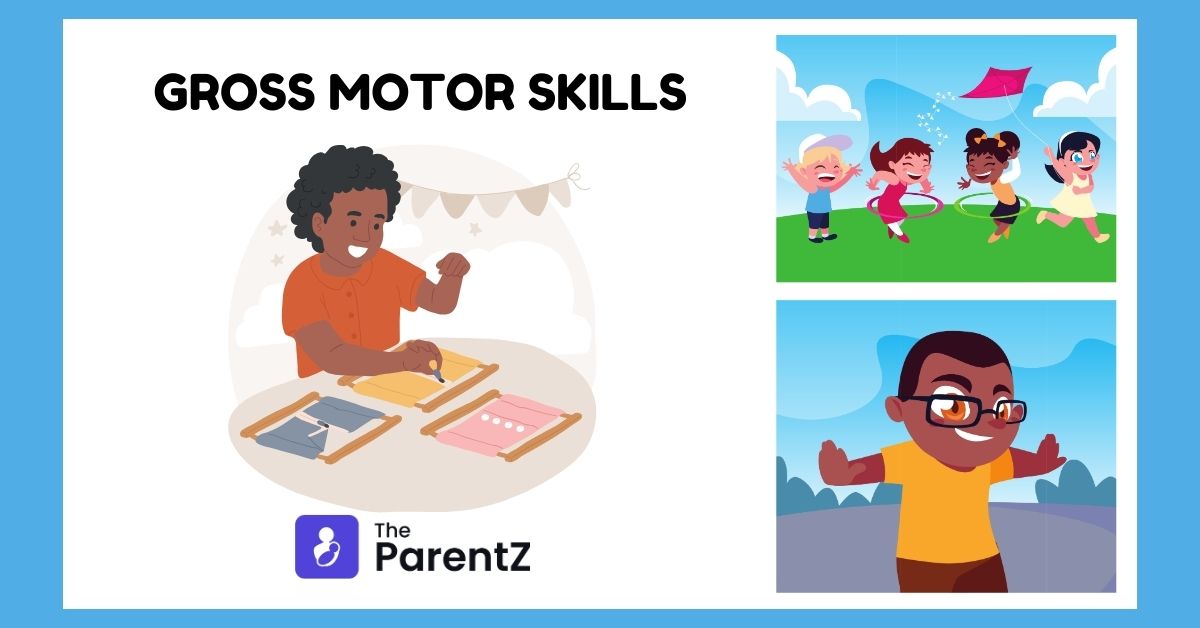Can you imagine how life would be if we were unable to control and move our muscles, our body? Motor control is an extremely important part of our day to day life and helps in performing even the most basic activities. Ranging from static activities to dynamic ones, we are able to perform them owing to the development of gross motor skills.
What are gross motor skills?
In literal terms, gross refers to large while motor refers to movement. Clubbed together gross motor skills means movement of the larger muscle groups in the body. They involve the large muscles of our body such as the arms, legs and the torso. Gross motor skills are used for almost all everyday activities such as standing, walking and bodily movements.
Why are gross motor skills important?
Gross motor skills are very important for an optimum life. Development of gross motor skills in a child makes them more independent as they are able to perform movements on their own, allow them to explore their environment and increase their learning opportunities.
They include a variety of everyday activities such as:
- Standing
- Sitting
- Walking
- Running
- Exercising
- Playing sports
- Dancing
- Chewing
- Movements of torso
- Bending forwards
- Movements of the neck
- Raising of arms
- Waving of arms
Some movements which require optimum eye hand coordination may also be a type of gross motor skill. Such movements include:
- Throwing a ball
- Catching a ball
- Kicking a ball
- Riding a bike
- Skateboarding
- Skipping
- Swimming
- Rollerblading
- Doing a cartwheel
What does the development of gross motor skills mean?
Development of gross motor skills not only means the optimum development of muscle groups in the body but also a couple of other functions.
Gross motor skills require a proper development of the skeletal muscles and the bones ie. the skeletomuscular system along with a proper development of the nerves of the body. They also need optimum balance, coordination and spatial awareness.
What gross motor skills to expect at what age?
Gross motor skills start developing at a fetal stage before birth itself. Kicking of the fetus in the womb of mother may arguably be the first movement felt and a direct result of gross motor skills. After birth, these skills are developed over a course of several years. There is a timeframe documented by healthcare professionals for the development of gross motor skills in relation to the age of the child.
0-2 months
- Tries to push up body when lying on the stomach
- Limb movements become progressively smoother as compared to jerky movements previously
4 months
- Starts to develop control of the neck
- Can hold head steady
- Can roll over from tummy to back
- Brings hands to the mouth
- Swings hands at dangling toys
6 months
- Can roll from tummy to back and from back to tummy
- Tries to sit but needs support
- Starts creeping movement by moving with help of limbs while the belly touches the ground
9 months
- Starts crawling
- Can sit without support
- Tries to stand but needs support
- Tries to walk with the help of holding onto furniture
12 months
- Can walk alone without holding onto furniture
1.5 year / 18 months
- Can walk alone and does not need support
- Can run but not properly
- Starts jumping
- Can walk up the stairs while holding onto support and two feet at a time
2 year / 24 months
- Begins running
- Stands on tiptoes
- Kicks a ball
- Can walk up and down the stairs while holding onto support two feet at a time
3 year / 36 months
- Runs easily
- Walks up and down the stairs one foot at a time
- Can ride a tricycle
4 year
- Hops on one foot
- Stands on one foot for 2 seconds
5 year
- Starts skipping
- Stands on one foot for greater than 10 seconds
- Can perform a somersault
- Can climb a ladder
Summing up
Gross motor skills develop throughout the age and continue developing until adolescence. The above mentioned skills are those which develop until 5 years of age and a delay in their development may be an indication of some disorder which might need evaluation. While the development of these skills is a natural process, parents can help aid in their development by providing a stimulating and encouraging environment for the child.





Be the first one to comment on this story.